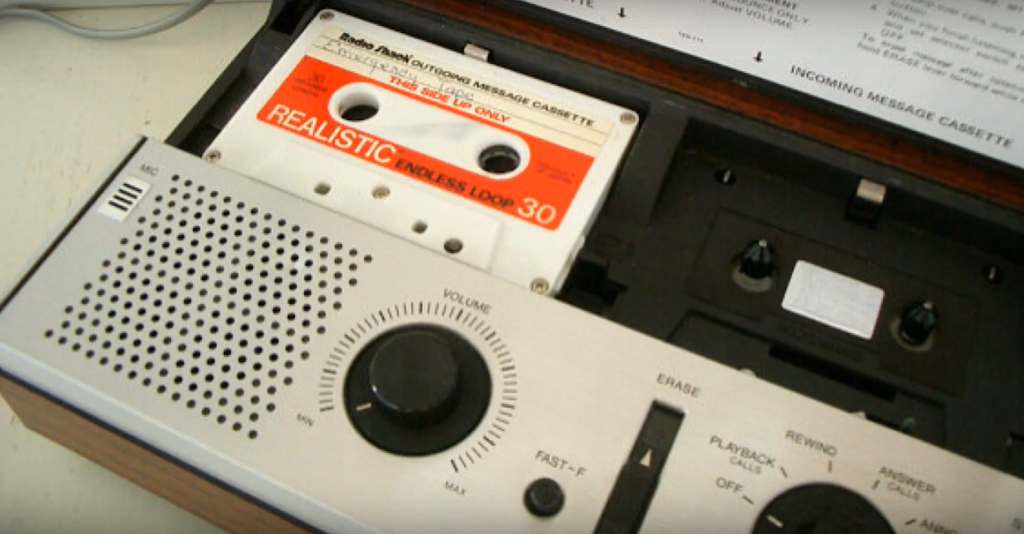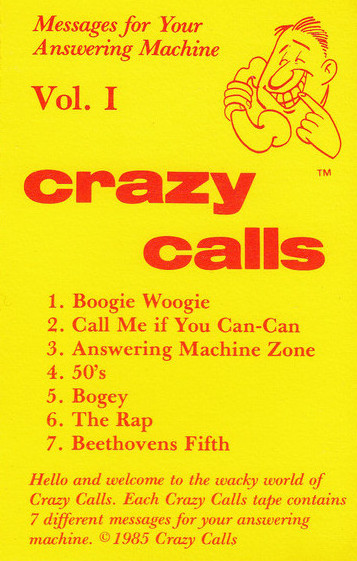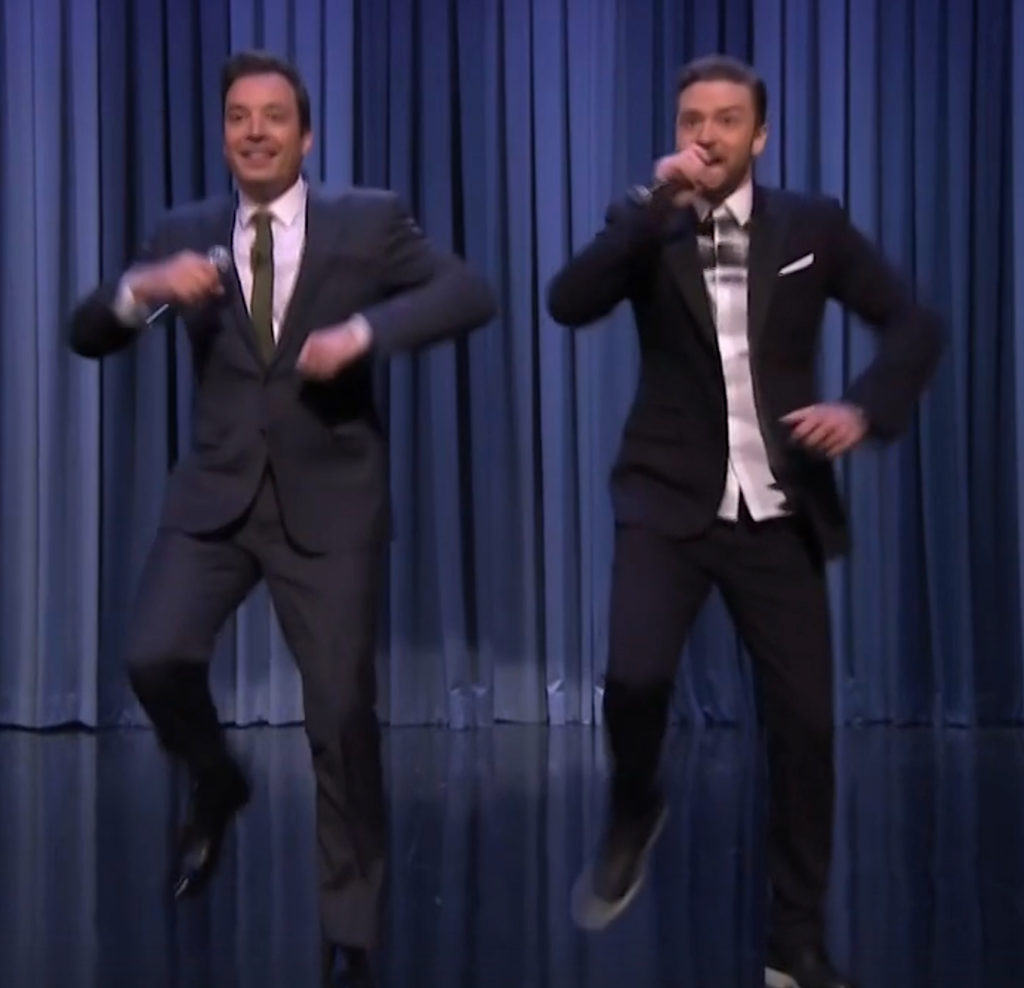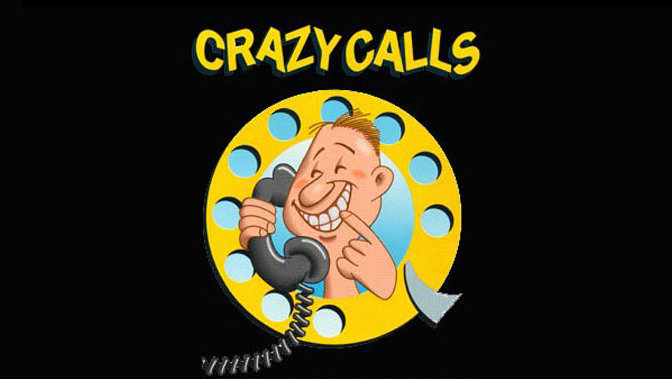Once upon a time, if you wanted to talk to someone on the phone and they weren’t in their house and able to hear the ring, you were out of luck and would just have to keep calling until the person was there. That was until the rise of in-home answering machines, boxes you’d hook up to your phone that would allow people to leave messages for you on a cassette.
These days, if you have someone’s phone number, you expect to be able to reach them almost instantly, because most people have their phones on their person at all times. But in 1985, being able to call a family member, friend or love interest and record yourself saying “Hey, it’s me, give me a call back” felt like a game-changer.

But as answering machines became more a part of daily life, some people wanted something more out of their outgoing message than just, “Hi, I’m not home but leave a message and I’ll call you back.” Nonconformist answering machine users sought outgoing messages that better reflected their personalities. Perhaps you wanted to express your detached cool? A deadpan “You know what to do” was plenty. Have a mischievous sense of humor? Probably millions used the timeless “Hello?,” followed by a lengthy pause, during which the incoming caller starts talking, thinking they’re speaking to a human being before the “I’m not here” message kicks back in. Zing! Many others would take things further, creating their own funny little skits or songs (a la George Costanza).
But what about those who wanted to push their outgoing message game to the next level but didn’t want to do their own creative legwork? A variety of pre-recorded cassettes featuring mildly funny bits — including songs in a variety of music styles — were readily available by the mid-’80s to fill that hole in the marketplace.
Radio Shack had their own line of colorful outgoing message cassettes, but there was one tape that stood above the rest. If you watched a lot of TV in the mid- to late-’80s, you likely remember the commercials for Crazy Calls, a 7-track cassette tape that sold for $14.95… plus $3 for postage and handling. To purchase, you could call an 800 number with a credit card or, if you had a little more patience, send a check or money order to a P.O. box in New York City.

The commercials seemed to run constantly, causing snippets of the songs and gags on the tape to become seared forever into the brains of more than a few TV junkies of the era. As such, Crazy Calls remains a source of ’80s call-backs in popular culture. It’s been referenced on shows like The Simpsons and Family Guy and the 1980s-set sitcom The Goldbergs even had an entire 2016 episode titled “Crazy Calls” that referenced the cassette.
To get a Crazy Calls track on your machine took some tinkering. You couldn’t just plug the cassette into your answering machine. Per the instructions on the tape sleeve: “To use your CRAZY CALLS simply place the speaker of your cassette player or stereo 1 foot from your answering machine microphone. Set Volume Control at normal speaking volume. You will hear 4 beeps before each message. Select your message, wait until you hear the 4th beep, and then immediately depress the Record Button on your answering machine. Let the machine play through to the end. Release the Record Button. You are ready to enjoy CRAZY CALLS.”
Oh, but how to choose which 20-30-second track to use? There was “Boogie Woogie,” an Andrews Sisters-style swing-jazz bop: “Hey, how are ya? Sorry that I’m not a home/But when I get the message on my telephone/You’ll be the first one on my list…” Or perhaps you want to go a little more mysterious and hit callers with “Answering Machine Zone,” a Twilight Zone parody with a Rod Serling-like voiceover.
Also on the tape were the operatic “Call Me If You Can-Can,” the Doo Wop-flavored “50’s,” the Humphrey Bogart tribute “Bogie” (the only track not featured in the commercial) and the self-explanatory “Beethovens Fifth,” which added vocals and lyrics to one of Ludwig’s most famous riffs (“Nobody’s home/Nobody’s home”).
Another memorable bit from the Crazy Calls commercials was “The Rap,” a bumpin’ hip hop jam that reflected the sound of rap music in the early ’80s. (Big rap albums that came out in 1985, the year Crazy Calls was copyrighted, included LL Cool J’s Radio and Run-D.M.C.’s King of Rock.) Not everyone was aware of hip hop yet, so there’s a good chance “The Rap” was someone’s introduction to the music.

In 2014, “The Rap” was included in “History of Rap 5,” a segment on The Tonight Show in which Jimmy Fallon, Justin Timberlake and The Roots perform a medley of classic hip hop songs. Sandwiched between Run-D.M.C. and Tone Loc, the singer and talk show hosts busted out the outgoing message’s immortal bars: “I’m glad you called, but I’m not home/But I’ll be back before too long/You gotta speak your style, and your number too/And this is all you got to do/Wait for the beep/You gotta leave your name, gotta leave your number/Wait for the beep.”

Crazy Calls’ creators Mitch and Ira Yuspeh are still in the music business, offering recording services and more through their NYC-based recording studio and production company. They also maintain a website dedicated to Crazy Calls, which they say sold over a million copies through its TV campaign.
In 2015, the original Crazy Calls (as well as a handful of bonus cuts) were released digitally for the first time via Bandcamp.

